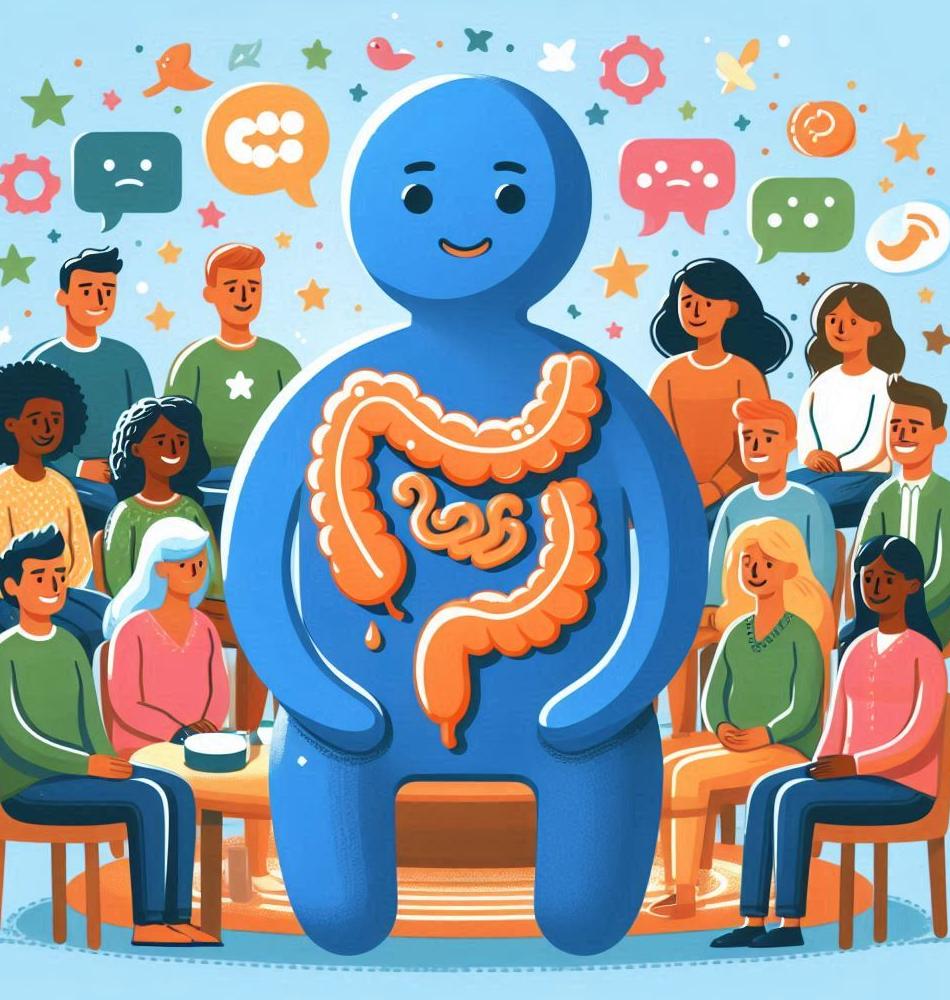Ulcerative colitis is a chronic condition that can disrupt the lives of those who suffer from it. Characterized by inflammation and ulcers in the colon, it can lead to a host of uncomfortable symptoms including abdominal pain, diarrhea, and fatigue. As anyone with ulcerative colitis can attest, navigating day-to-day life with this illness often involves a delicate balance of diet, medication, and emotional well-being. So how do you heal ulcerative colitis? Here, we delve into various strategies that could potentially provide relief and management solutions for this challenging disease.
Understanding Ulcerative Colitis 🚑
Before delving into treatment options, it is crucial to understand what ulcerative colitis is. It is one of the inflammatory bowel diseases, which also include Crohn's disease and indeterminate colitis. While the exact cause of ulcerative colitis remains unclear, several factors are thought to contribute, including:
- Genetic predisposition
- Immune response malfunctions
- Environmental factors
Ulcerative colitis primarily affects the innermost layer of the large intestine (colon) and can lead to severe complications if left untreated. The severity and frequency of flare-ups can vary significantly from person to person, making personalized approaches to treatment essential.
Dietary Considerations for Ulcerative Colitis 🍽️
A critical pillar of managing ulcerative colitis lies in the foods we consume. Careful dietary choices can both mitigate symptoms during flare-ups and promote healing in periods of remission.
Foods to Include ✅
- Fruits and Vegetables: Opt for cooked or canned options to ease digestion.
- Healthy Fats: Avocados, olive oil, and fatty fish provide anti-inflammatory benefits.
- Lean Proteins: Skinless poultry, legumes, and fish can help strengthen your body.
- Low-fiber grains: White rice or refined pastas might be easier on the digestive system.
Hydration 💧
Maintaining hydration is vital for individuals with ulcerative colitis. Dehydration can occur due to frequent diarrhea, so focusing on clear liquids and electrolyte-replenishing drinks can help restore balance. Always consult with a healthcare professional to assemble an individualized hydration plan that suits your needs.
Foods to Avoid ❌
- Dairy Products: Many people with ulcerative colitis find dairy hard to digest.
- High-fiber Foods: Whole grains and certain vegetables may exacerbate symptoms during flare-ups.
- Spicy Foods: Spices can irritate the digestive tract, leading to discomfort.
- Caffeinated and Alcoholic Beverages: They may stimulate bowel activity, worsening symptoms.
Medical Interventions 🩺
While dietary management plays a significant role, it is crucial not to overlook medical interventions that can provide substantial relief for ulcerative colitis symptoms.
Medications 💊
Several classes of medications are commonly prescribed to manage ulcerative colitis:
- Aminosalicylates: These drugs help reduce inflammation in the intestines.
- Corticosteroids: Used for quick relief during flare-ups, but long-term use can have side effects.
- Immunomodulators: They modify the immune system's response to alleviate symptoms.
- Biologics: These are newer medications that target specific pathways in the inflammatory process.
Working with a Healthcare Team 🤝
Consulting a gastroenterologist is vital for finding the most effective treatment plan. Regular check-ups and communication about changing symptoms can result in adjustments to medication types and dosages.
Lifestyle Modifications for Managing Stress 🧘♀️
Considering the link between stress and ulcerative colitis flare-ups, incorporating lifestyle changes focused on stress management can be incredibly beneficial.
- Exercise: Regular physical activity can lower stress and enhance mood.
- Meditation and Yoga: Mindfulness techniques promote relaxation and emotional well-being.
- Quality Sleep: Establishing a regular sleep schedule can enhance recovery during periods of healing.
Frequently Asked Questions 🤔
Here are some common concerns for those living with ulcerative colitis:
- Can dietary changes drastically improve my symptoms?
- Are there foods that I should avoid completely?
- How important is emotional well-being in managing ulcerative colitis?
- What role does research play in developing new treatment options?
Support Networks and Resources 🧑🤝🧑
Connecting with support groups may provide emotional support and help individuals with ulcerative colitis feel less isolated. Resources include:
- Local support groups led by healthcare professionals
- Online forums for discussions and questions
- Awareness events and conferences
Conclusion 💡
So, how do you heal ulcerative colitis? The answer isn't as straightforward as one might hope. It involves a combination of dietary adjustments, medical treatments, lifestyle modifications, and constant learning about your body's responses. Creativity in approaches, along with compassion and understanding from those around you, can lead to significant improvements in managing ulcerative colitis. Remember, every individual's journey is different, and what works for one person may not work for another. Always reach for a comprehensive support system and stay tuned into your health.


